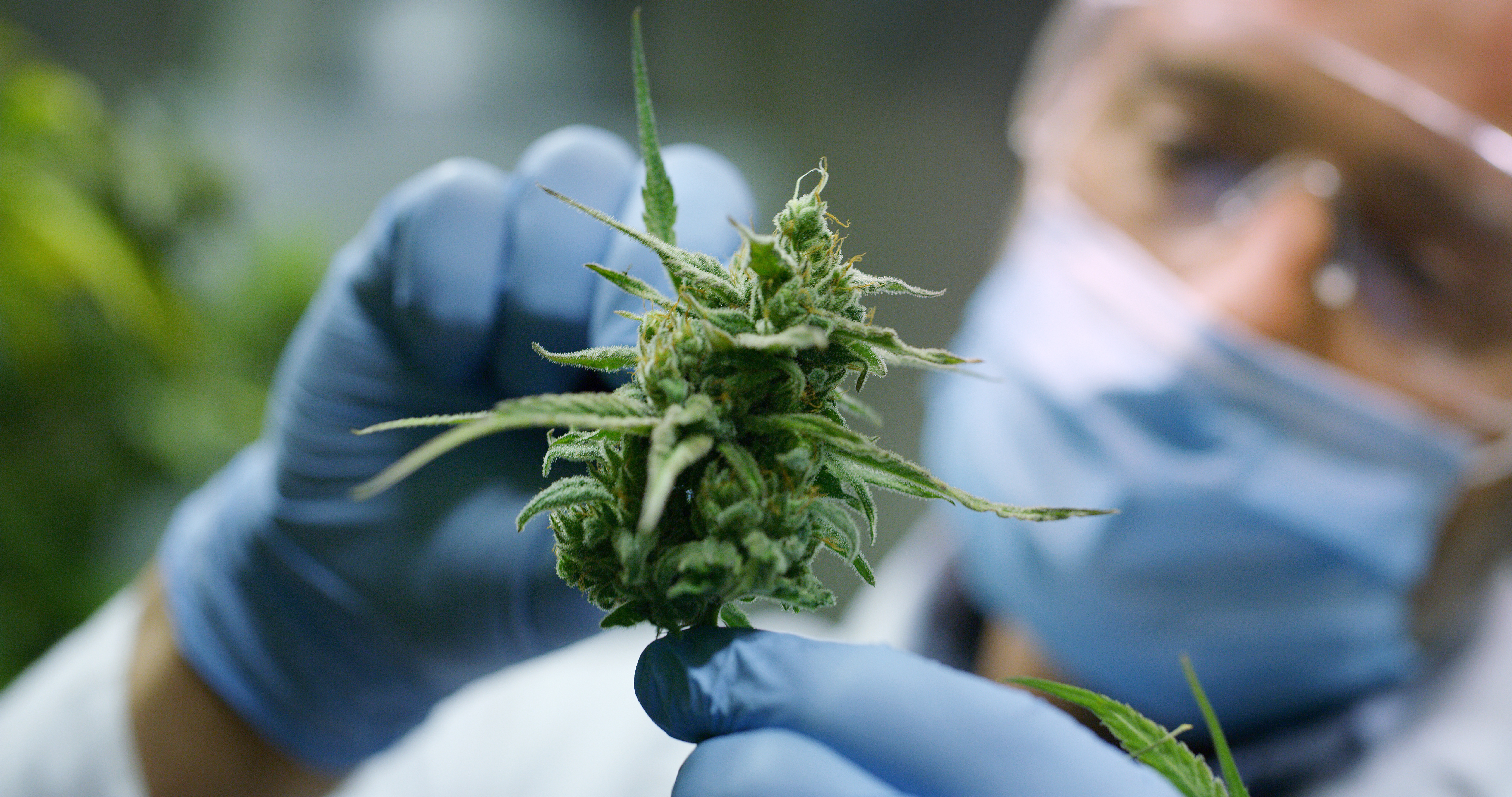Could international and European legal obstacles jeopardise the German government's legislative plan to legalise cannabis?
Published on 15th December 2022
German government publishes paper with legislative proposals, but the impact of international and European law on its plan is still unclear.

The German government's plans to legalise cannabis for recreational purposes in Germany continue to move forward: after the governing coalition had agreed in the 2021 coalition agreement to allow the controlled dispensing of cannabis for recreational purposes to adults in licensed shops, the plans for introducing corresponding legislation have now become more concrete.
Following an extensive consultation process between politicians, experts and interest groups that took place in the summer of 2022, the government published a paper (Eckpunktepapier) at the end of October with its policy proposals on the introduction of the controlled dispensing of cannabis for recreational purposes to adults. Even though the key points adopted in the paper are not yet binding, they are a good first indication of how the government envisages the planned legalisation.
However, before being implemented, the proposed legislation will need to overcome possible obstacles under international and European law. Whether the German legalisation plans can be implemented at all under international and European law is to be determined by a preliminary legal examination conducted by the EU Commission. This preliminary examination is held as an informal, structured dialogue between the Commission and the Member State concerned and is intended to ascertain whether European and international law will prevent the introduction of the proposed legislation, and is intended to avoid subsequent infringement proceedings.
Originally, the government planned to submit its recently published paper containing the main legislative proposals to the EU Commission for preliminary examination. However, the Federal Ministry of Health (Bundesministerium für Gesundheit) has now conceded that only the finalised draft legislation can be submitted for preliminary examination. According to the Federal Ministry of Health, the draft legalisation is already in progress, but its finalisation is not to be expected until the first quarter of 2023 at the earliest. It therefore remains to be seen whether the legalisation, planned for the beginning of 2024, will be further delayed.
1. Background to the proposed legislation
The background to the government's legislative plan to legalise cannabis for recreational purposes is that a tendency towards increasing addictive behaviour and a prospering black market for cannabis has been observed in recent years.
The controlled distribution of cannabis is intended to control its quality and to protect consumers from contaminated substances, as well as to improve health protection for children and young people. The introduction of a cannabis tax is also expected to generate considerable revenue for the government.
2. Current legal situation in Germany
The cannabis plant, as well as cannabis resin, can neither be trafficked nor prescribed pursuant to section 1, paragraph 1 of the Narcotics Act (Betäubungsmittelgesetz – BtMG) in conjunction with Annex 1 of the Narcotics Act. According to section 29, paragraph 1 of the Narcotics Act, the cultivation, production, possession, trade and acquisition of cannabis, among other things, are prohibited – the consumption of cannabis, on the other hand, is exempt from punishment, as it is not explicitly listed in section 29, paragraph 1 of the Narcotics Act.
There are limited exceptions to the prohibition: in particular, cannabis or cannabis products are exempt if (i) their tetrahydrocannabinol (THC) content does not exceed 0.2%, (ii) their traffic exclusively serves commercial or scientific purposes, and (iii) they cannot be misused for intoxication purposes. Food products made of/with cannabis seeds, such as hemp seed salad oil, hemp seed beer or hemp seed chocolate, are also not covered by the Narcotics Act and therefore permitted.
3. Principal changes envisaged
The following regulatory changes are envisaged in the paper as a basis for draft legislation legalising cannabis:
1. Declassification as narcotic
Cannabis and THC are no longer to be classified as narcotics under the Narcotics Act. The acquisition and possession of up to 20-30 grams of recreational cannabis for personal consumption in private and public spaces will be made legal.
Private cultivation will also be permitted, within limits of up to three female flowering plants per adult. However, artificially-produced active substances of the cannabis plant, as well as cannabis-enriched food products such as biscuits or sweets (so-called “edibles”), will not be legalised.
2. State-controlled production and supply chain
Government-controlled production and supply is envisaged, as well as government-controlled distribution to end customers under a licensing system.
The purchase of cannabis products for recreational purposes from abroad will not be made possible for the time being – unlike cannabis for medical or scientific purposes. According to the government, importation would raise further legal problems, so that, at least initially, cultivation will take place exclusively in Germany. Whether the demand in Germany can be met by domestic cultivation alone remains to be seen.
Distribution to end customers will be limited in terms of quantity and will take place in licensed specialist shops that are solely geared towards the sale of cannabis for recreational purposes. Distribution through pharmacies may also be possible. Sales by mail order are not currently planned but will be taken into account in the evaluation of the regulations after four years. For reasons of youth protection, cannabis shops will not be allowed to operate near schools and playgrounds. The advertising of cannabis products for consumption purposes will be completely prohibited.
In addition, a separate excise tax ("cannabis tax") will be levied on sales, in addition to the general turnover tax. This cannabis tax will be based on the THC content and is intended to reflect a "marketable" purchase price, especially with regard to the black market.
3. Age limits and THC limits
The minimum age limit for acquisition and possession will be set at 18 years of age.
In principle, an upper limit for the THC content in legal recreational cannabis for adults will be waived, but this is still being examined for buyers under 21 years old. In the ministerial vote of 19 November 2022, a limit of 10 percent THC content was proposed.
4. Compatibility with international law
Whether the German government's legislative project can actually be implemented remains an open question. International and European regulations on the handling of cannabis for recreational purposes could stand in the way of the planned legalisation in Germany.
Internationally, there are concerns about the compatibility with various UN conventions. The UN Convention against Illicit Traffic in Narcotic Drugs and Psychotropic Substances of 1988, the Single Convention on Narcotic Drugs of 1961 and the Convention on Psychotropic Substances of 1971 are problematic in this respect. Through these conventions, the contracting parties undertake to prohibit all commercial activities in connection with cannabis outside medical or scientific purposes.
Under European law, the so-called Schengen Implementing Convention and the EU Framework Decision 2004/757/JHA of 25 October 2004 also offer legal obstacles. In addition, the European Union is also a member of the UN international treaties referred to above, so this could also lead to tensions.
In order to ascertain whether European and international law will prevent the introduction of the proposed legislation and to avoid subsequent infringement proceedings, the Federal Ministry of Health plans to submit its draft legislation to the EU Commission for a preliminary examination with the applicable international and European regulations.
In addition to the preliminary examination by the EU Commission, the German government plans to demonstrate to the other parties to the international conventions by means of an "interpretation declaration" (Interpretationserklärung) that the government-controlled system for the legalisation of cannabis products for recreational purposes contained in its paper is compatible with the legal requirements with regard to the protection of health and young people and the purpose of the international conventions.
5. Prospects
The German government's paper gives a first insight on the proposed conditions of the government's legislative plan to legalise cannabis for recreational purposes. The finalised draft legislation is eagerly awaited in Germany. Subsequently, with view to the European Union, it remains to be seen whether the EU Commission will certify compatibility of the legislative plan with European and international law.
Whether and when the legalisation plans can be implemented is therefore not yet clear. And although the first major investments have already been made, it can be assumed that the big gold rush into the market will not start until these legal issues have been clarified. Whatever the outcome, it is likely to take some time before legalisation is achieved (if at all).
A special thanks to Mona Sterheltou and Jonas Werner.







